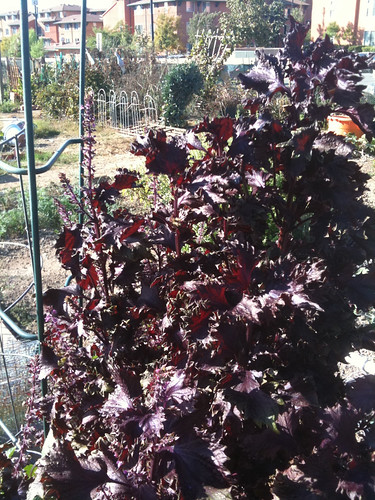If you invest your time in doing organic gardening properly, you will produce notably positive effects for your plants and your planet. It proves you want your plants to be healthy plants. As with any activity requiring a certain set of skills, there is always more to learn. Below are some tips that will help you to develop your talent.
Try to put an aspirin water for fighting plant diseases. Dissolve 1 aspirin (1.5 pills per gallon of water) in a plant disease fighting solution. You can just spray this on them fight of disease. Try spraying your plants at least once in each three weeks.
The ideal temperature to set your thermostat for indoor plants is between 65-75 degrees throughout the daylight hours. The temperature needs to be this warm so the plants can grow. If you are not willing to keep your house that warm during winter, consider purchasing a heat lamp to use on the plants.
Keep your garden tools handy to work more efficiently.
When your plants begin to sprout, they will not be in need of the warmth they needed to germinate. Keep a close watch on your seeds to know when you should do this.
Pine Needles
Pine needles make surprisingly great organic mulch. Cover soil beds with a few inches of pine needles, they will disperse acid to the soil.
Space is important to remember when you plant an organic garden. It is easy to underestimate the amount of space your plants will need once they start to grow. Plan your garden carefully and put an appropriate amount of distance between the seeds.
Use an old laundry basket to help you collect your produce. The basket will make a great strainer when you wash your garden.
Your compost pile should contain green plant materials and dried ones in equal amounts. Green plant material comprises leaves, weeds, leaves, grass clippings, and grass clippings. Dried plant material includes straw, cardboard, cardboard, straw, and any cut up wood materials. Avoid using ashes, meat, charcoal and diseased plants in your compost.
Do you want to kill weeds without the use of harmful chemicals? Take layers of newspapers and layer them for controlling weeds. Weeds can’t grow without light. The layers of newspaper will block sunlight and weeds because they no longer receive any sunlight. Newspapers tend to break down nicely over time to become part of the compost. You can then add a mulch to make them look more attractive if you like!
You now have the information you need to start applying these tips to your own organic garden. This is a positive thing. The above tips were constructed to add to your personal organic gardening techniques, as you are never done learning. With luck, you have learned something you can use to get the most from your garden.

